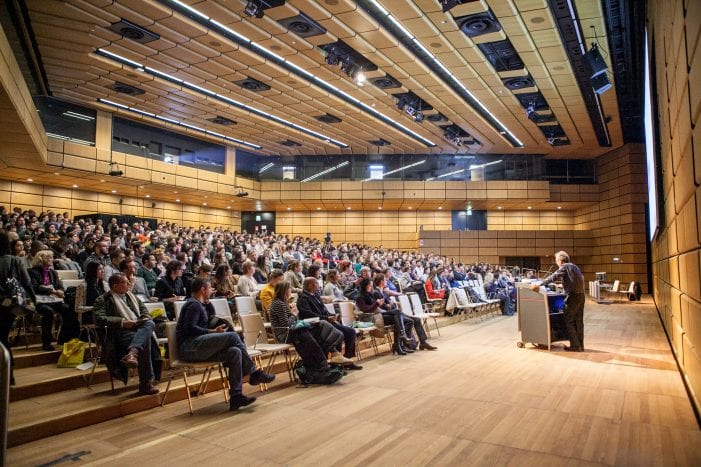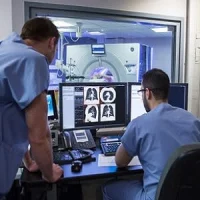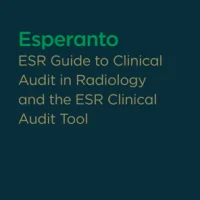President of the European Society of Radiology speaks about the AI opportunities as ESR and GE Healthcare partner for upcoming European congress.

Artificial intelligence (AI) promises to make sense of heaps of data no human would be capable of to generate actionable insights that can help improve efficiency, increase diagnostic accuracy, improve the patient experience and ultimately, to personalize treatment. The average hospital generates 50 petabytes – or 50 million gigabytes – of data every year, mostly from medical images, clinical notes, lab tests, and genomics. Yet less than 3% of that data is ever used, presenting a real need for AI.
But radiologists are wary of AI, seeing it as both a threat and an opportunity, according to European Society of Radiology (ESR) President Professor Lorenzo E. Derchi.
“Some computer scientists say that there will be no radiologists in the future because there will be no need for us anymore,” says Professor Derchi. “But I see AI as an opportunity, as an additional tool we can use to ease our work. It can help us see more and diagnose more accurately, faster.”
“We are in the revolution of our professional lives,” he says. “AI can help us decide which imaging technique is best, then help us better understand what we see on the images, so we can make better decisions for the patient. Then we can spend more time with the patient.”
AI + the human touch
Key to the AI revolution is the human touch. Professor Derchi thinks the greatest AI achievements of the future won’t just be the new technologies – it will be in creating connections between AI and radiologists, and between radiologists and patients.
Forging a patient connection is a critical element of how radiologists can use AI in radiology. Professor Derchi says patients are always looking for the human touch in medicine, and radiology is no different.
“Patients don’t want to get their information from a computer, they want to talk to a radiologist or doctor,” he adds. “The relationship between doctor and patient will never disappear”.
Professor Derchi also predicts that the move toward AI in radiology will motivate radiologists to be more aware of the raw data they acquire and analyze. “Right now, AI is often presented as a ‘black box’ – you put in data and a diagnosis comes out. But it’s the radiologist’s role to decide which data will help form a diagnosis and help the patient”.
“We have to ask the correct questions and enter the correct data to make AI a valuable tool,” he says.
That’s part of the reason ESR is partnering with GE Healthcare at this year’s ECR (European Congress of Radiology) in Vienna, to unite the technical side with the clinical side of AI in order to better understand the “black box.” Professor Derchi hopes this type of partnership could also cultivate a cohesive global vision for AI.
“I’m concerned that we have no international regulations on AI as a whole. Partnerships with industry partners such as GE Healthcare could help us agree on an international standard of ethics and standards,” he says.
Bringing the conversation to the radiological society
AI will be a central topic at ECR this month in Vienna. Hosted by the ESR, the ECR is one of the largest and most innovative scientific meetings in Europe.

© Flora Huebel / ESR
“AI will be one of the leadings topics at this year’s ECR, and GE Healthcare is an important partner in making ECR 2019 the leading event on AI for radiologists. Through our joint efforts, ECR participants will be able to witness AI excellence on the highest level,” says Professor Derchi.
“AI is one of the most exciting developments in healthcare today and a key enabler to achieve precision health. Done right, it can be the technology of the decade, perhaps the century, in healthcare,” says Catherine Estrampes, President and CEO of GE Healthcare Europe. “But there’s still much work to do, sound data science and eliminating data siloes are key Europe and the European radiology community have a key role to play in the AI transformation”.
The partnership includes joint sessions on AI and 300 m2 dedicated space in GE Healthcare’s 850 m2 booth where visitors can experience the AI transformation through interactive tools co-developed by GE Healthcare, Amazon Web Services and Intel.
Find out more about Edison here
Find out more about GE Healthcare here







